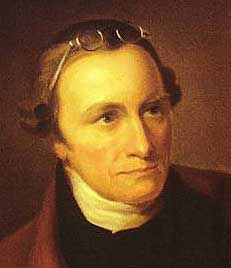
General Nathanael Greene and the American Revolution in the South will be published by the Univ. of South Carolina Press in August 2012.
One of the essays is by me, written back in 2006, entitled “With humanity, justice and moderation”: Nathanael Greene and the Reconciliation of the Disaffected in the South, 1780–1783. Here’s the description:
A major general in the Continental Army during the American Revolution, Nathanael Greene has received historical attention as a commander who successfully coordinated the actions of seemingly disparate kinds of soldiers—regular Continental troops, militiamen, and partisan guerrillas. He has often been acclaimed as the second most important military figure of the Revolution, behind George Washington. General Nathanael Greene and the American Revolution in the South offers new perspectives on Greene’s leadership of Continental troops, his use of the mounted troops of South Carolina partisan leaders Thomas Sumter and Francis Marion, his integration of local militia into his fighting force, and his proposal that slaves be armed and freed in return for their military service.
During the first five years of the War of Independence, Greene served in the North as General George Washington’s most trusted subordinate. Through successes, failures, and hard-earned experience, Greene learned that mobility, logistical support, and effective civil-military relations were crucial components of eighteenth-century warfare, and especially of a successful revolution. He applied these lessons as commander in the Southern Department, where he led one of the most startling turnabouts in American military history, reversing a rigid British occupation and saving American liberty in the South. This collection of essays provides an assessment of the most important period of Greene’s military career. Editors Gregory D. Massey and Jim Piecuch have compiled essays from distinguished scholars and written a joint introduction demonstrating how Greene’s actions shaped the war in the South and deepening our understanding of Greene’s role in winning American independence.
And here’s the first paragraph from my essay:
The struggle for American independence in the southern states was principally a civil war after the British decided to concentrate offensive operations there in late 1778. While there was a traditional military contest between regular armies in the field, the primary conflict was a bloody internecine struggle between Loyalists and rebels marked by plundering, property destruction, violence and murder. These concurrent conflicts created great difficulties for Patriot military and civilian leaders in the nascent southern states in their attempt to establish political legitimacy through the restoration of order and stability. No American leader was more aware of these challenges than Major General Nathanael Greene, the Rhode Islander who assumed Continental command in the South in December 1780. The need to rebuild the southern states was of paramount importance to Greene, who recognized the necessity of ending uncontrolled violence among the citizenry. Greene and other Patriot leaders had to balance the need for an end to the chaos through some reconciliation with the region’s Loyalists as the war ended, with the strong desire among many Whigs to seek violence, retribution and property confiscation against their enemies. Greene consistently sought to limit the retributive violence and calls for vengeance. He worked to foster a spirit of conciliation in order to bring peace, prosperity and order to the South. This position, however, was not universally shared by all supporters of the American cause, which often frustrated Greene’s efforts to ensure leniency toward Loyalists during the war’s final years.









